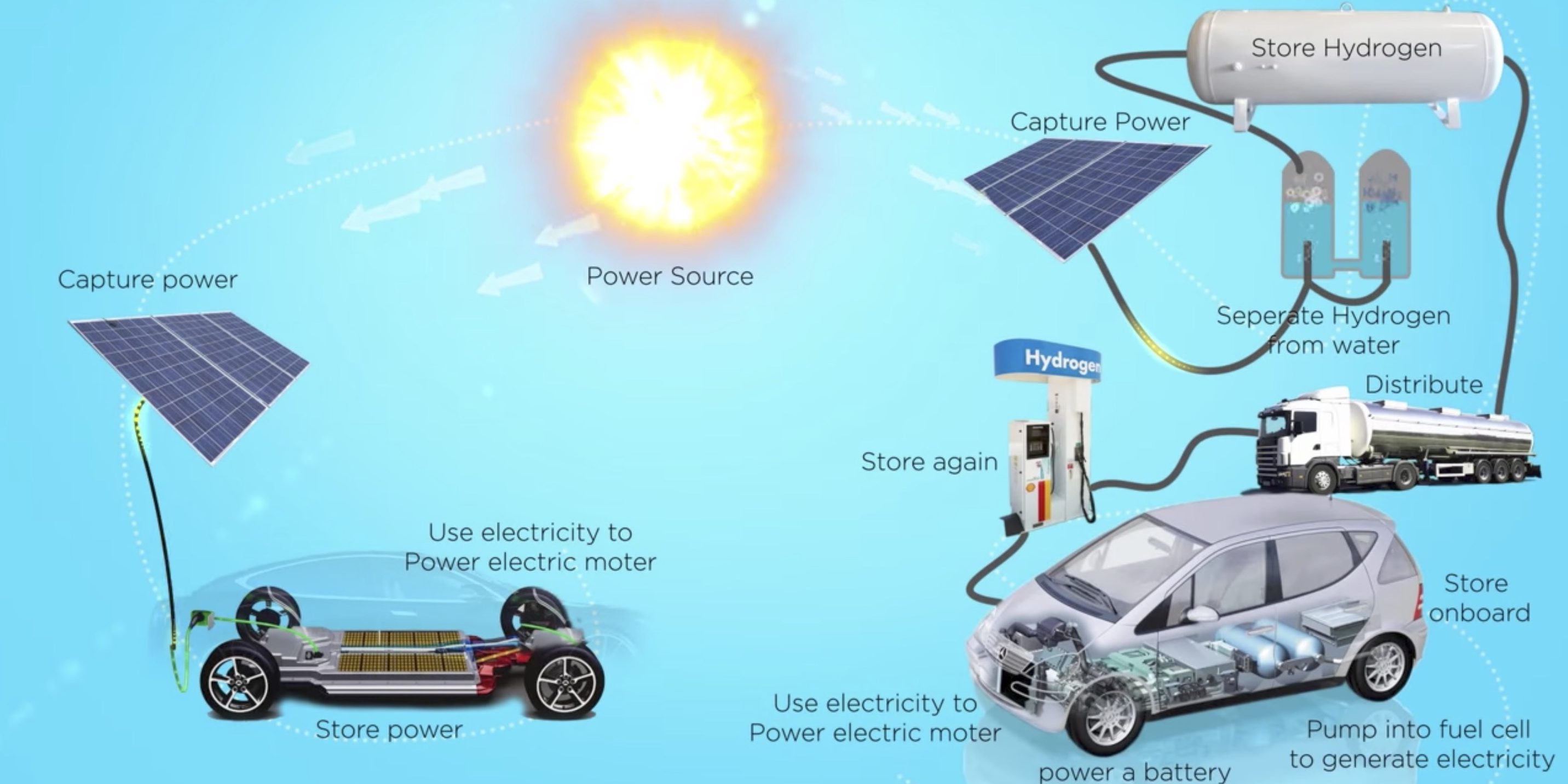
What is the life of hydrogen fuel cell
The fuel cell stacks in cars are designed to last for the lifetime of the vehicle, which is around 150,000 to 200,000 miles. Once they have completed their lifespan, fuel cells can be disassembled and the materials recycled.
Is fuel cell the future
While there are over 10,000 fuel-cell cars on the road today, experts predict there could be upwards of 13 million by 2030. As governments worldwide set ambitious targets to reduce greenhouse gas emissions, fuel cells are increasingly seen as a viable alternative to fossil fuels.
Why is hydrogen no longer the fuel of the future
A large amount of hydrogen is required to generate just a small amount of energy. As a result, cars would need huge tanks with hydrogen or they'd have a very short range between fuel stops. That makes it a necessity to build an extensive network of hydrogen fuel stations.
Do hydrogen fuel cells produce waste
Hydrogen can be used as fuel in a variety of fuel cell electric applications to generate power, emitting only water and heat as byproducts.
Is hydrogen fuel safe for the environment
Hydrogen is a Clean and Flexible Energy Source to support Zero-Carbon Energy Strategies. Hydrogen fuel cells provide an inherently clean source of energy, with no adverse environmental impact during operation as the byproducts are simply heat and water.
What is the biggest problem with hydrogen fuel
While not as bad as using electricity generated using fossil fuels, the process still releases huge amounts of carbon – each tonne of hydrogen produced releases eleven tonnes of CO2, equivalent to driving 72,000 km in a passenger car.
What are the problems with hydrogen energy
It is the current technique used to obtain hydrogen gas in vast quantities. The downside to steam-methane reforming is that it emits a lot of greenhouse gases like carbon dioxide and carbon monoxide to the atmosphere, which are recipes for global warming.
Do hydrogen fuel cells damage the environment
Public Health and Environment
Emissions from gasoline and diesel vehicles—such as nitrogen oxides, hydrocarbons, and particulate matter—are a major source of this pollution. Hydrogen-powered fuel cell electric vehicles emit none of these harmful substances—only water (H2O) and warm air.
Are hydrogen fuel cells bad for the environment
Hydrogen fuel cells provide an inherently clean source of energy, with no adverse environmental impact during operation as the byproducts are simply heat and water. Unlike biofuel or hydropower, hydrogen doesn't require large areas of land to produce.
What is the disadvantage of hydrogen as fuel
Hydrogen is a highly inflammable substance and explosive in nature; it cannot be easily transported from one place to another and it can be generated by the hydrolysis of water but it is a very expensive process.
Do hydrogen fuel cells pollute
Hydrogen can be used as fuel in a variety of fuel cell electric applications to generate power, emitting only water and heat as byproducts. The conversion of hydrogen to electricity emits no pollutants that affect public health and minimizes greenhouse gases (GHG) that contribute to climate change.
Why hydrogen fuel is not the future
Scientists and analysts say that as hydrogen molecules are much smaller and lighter than those in methane, they are harder to contain. Once hydrogen enters pipelines, it can weaken metal pipes which can lead to cracking. Hydrogen is also far more explosive than natural gas which could create safety issues.
What are 3 cons of hydrogen fuel
Hydrogen fuel cells
Cons: This space-age technology is expensive. Acceptable range requires extremely-high-pressure, on-board hydrogen storage. Few places to refuel. Hydrogen is very expensive to transport and there is no infrastructure in place yet.
What is a disadvantage of hydrogen fuel
Hydrogen is a highly inflammable substance and explosive in nature; it cannot be easily transported from one place to another and it can be generated by the hydrolysis of water but it is a very expensive process.
What are three disadvantages of hydrogen fuel cells
Expensive to manufacture due the high cost of catalysts (platinum) Lack of infrastructure to support the distribution of hydrogen. A lot of the currently available fuel cell technology is in the prototype stage and not yet validated. Hydrogen is expensive to produce and not widely available.
How bad is hydrogen for the environment
Digging into the science of hydrogen
But when emitted into the atmosphere, hydrogen contributes to climate change by increasing the amounts of other greenhouse gases such as methane, ozone and water vapor, resulting in indirect warming. That's a problem because hydrogen's small molecule is difficult to contain.
Is hydrogen bad for the Environment
Digging into the science of hydrogen
But when emitted into the atmosphere, hydrogen contributes to climate change by increasing the amounts of other greenhouse gases such as methane, ozone and water vapor, resulting in indirect warming. That's a problem because hydrogen's small molecule is difficult to contain.
What is the biggest disadvantage of hydrogen fuel cells
Expensive to manufacture due the high cost of catalysts (platinum) Lack of infrastructure to support the distribution of hydrogen. A lot of the currently available fuel cell technology is in the prototype stage and not yet validated. Hydrogen is expensive to produce and not widely available.
What is the main disadvantage of hydrogen
Disadvantage: The Use of Fossil Fuels in Hydrogen Production
A common way to isolate hydrogen is to extract it from natural gas in a process called reforming. This process is costly and emits carbon dioxide, which is counterproductive to using an emission-free energy source.


